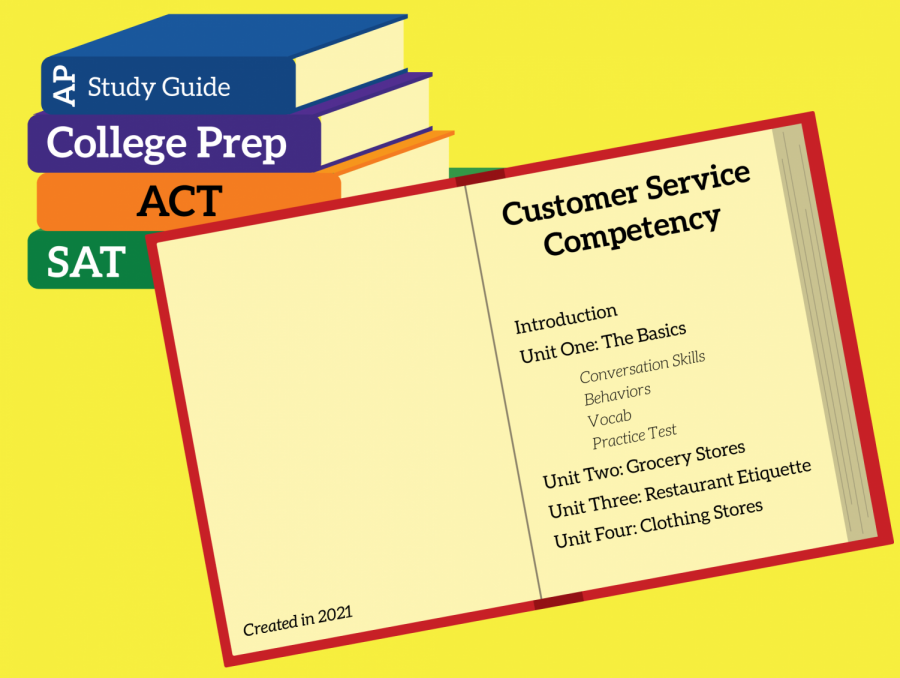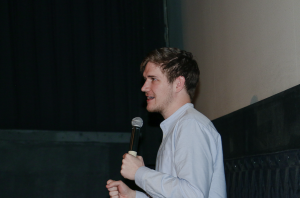Customer Service Competency Class Now a Requirement for Fordham Admission
Incoming first-years expected to exhibit proficient human decency before enrolling
Fordham now requires all incoming students to take a course in basic human decency and hopes that other schools will soon follow suit.
July 7, 2021
To graduate from high school, students are often required to undergo several common lessons, such as reading “The Great Gatsby” in English, learning the quadratic formula in math, and, depending on what state you live in, grappling with the difficult history of the United States. However, students are leaving the education system and entering adulthood without adequate information in one crucial field: being nice to customer service workers.
As college students flood their hometowns to fill summer job positions, many have been faced with a stark reminder of this major oversight of the American education system. Every time they are screamed at by a woman who tries to pay in coupons that expired a decade ago or are told they are idiots because their store is closed, they question how the American education system could have failed these consumers so terribly.
Now, in order to submit an application to Fordham, all students are required to take Customer Service Competency, a course soon to be offered in most high schools. The class is taught by an experienced retail or food service worker on how to behave when interacting with employees who are making minimum wage and are just trying their best. Fordham is requiring the course to encourage the Jesuit tenet of “cura personalis,” which is Latin for “an insane amount of gen-ed requirements.”
In a statement on the new requirement, Fordham administrators explained that they noticed a societal lack of proficiency in human decency and hope that requiring the course will encourage its wider implementation by other schools. They also reminded students that no matter how inedible the food is, the employees at Ram Café still deserve respect.
The required course contains multiple units, with the first being a lecture series with examples of specific conversation skills and behaviors to practice. Some of the most important takeaways include knowing what you want to order before a waiter asks you, not trashing a fitting room at a clothing store, not talking on your cell phone when your cashier asks you a question and treating working-class people with basic decency.
The course has regular vocabulary tests, with words like “please” and “thank you” being covered. Students are also drilled on inappropriate vocabulary words and phrases such as “stupid,” “idiot,” “Can I speak to your manager?” and “You just lost a customer.”
In a brief astronomy lesson, students are taught that the Earth revolves around the sun, and not, in fact, around them.
Once students are adequately familiar with both proper and improper terminology, they advance to a customer simulation phase conducted under psychologist BF Skinner’s behavioral school of thought. In the simulation, whenever a student uses an appropriate term or asks for help nicely, they receive a small piece of food as a reward.
Whenever a student uses inappropriate language or behavior, they receive a punishment to encourage them to correct the behavior. This punishment could be used if, let’s say, hypothetically, a customer throws a slice of pizza at you after you told her she couldn’t sit down at an empty table because of your state’s COVID-19 restrictions, resulting in the slice of pizza bouncing off the state-recommended plexiglass in front of you and onto the floor. Skinner often used small electric shocks, but some teachers may adapt this punishment to something like a spritz of water in the customer’s face or a double shift at Dairy Queen in the middle of July.
Students face a mathematical reasoning lesson in which they are taught how to calculate a 20% tip. They also learn how to calculate the ratio of employees to customers in a store and deduce from this information that they may have to wait a few minutes before they are helped. In a brief astronomy lesson, students are taught that the Earth revolves around the sun, and not, in fact, around them.
All the customers that students are expected to serve have not yet taken the course, have an IQ lower than 80, and have a Ziploc bag of coupons that expired in 2009.
After passing the customer simulation unit, students enter the final and most complicated test: the customer service employee simulation. Students are assigned a random customer service job in one of several industries and will be randomly assigned a minimum wage in the United States ranging from $7.25-$15.00 an hour (no matter which they’re assigned, it still won’t cover all of their basic living expenses!).
Some students are assigned to a struggling small business that may have to close its doors while others work at corporations that give them no breaks and send them three to five anti-union text messages a day.
All the customers that students are expected to serve have not yet taken the course, have an IQ lower than 80, and have a Ziploc bag of coupons that expired in 2009. In addition, students are tasked with budgeting an assigned expense such as a pile of late health care bills or rent payments, a liberal arts degree and crippling student loan debt, several children under the age of 10, or for some lucky students, all three.
Anyone who has previously worked retail of any kind on Black Friday can redeem their emotional trauma for time served and receive an exemption from the requirement.
On the last day of the simulation, students face the pandemic challenge in which they are told that they are essential workers but don’t deserve a pay raise, and that all of their customers are angry at them about government restrictions they have no control over. If students successfully complete the course, they can be considered for admission to Fordham.
This course prepares students for appropriate day-to-day interactions with customer service workers. However, schools that do not require the course and citizens who have already graduated high school could perpetuate harmful behaviors. For this reason, I propose all high schools adopt this requirement for graduation and that diplomas previously issued become null and void until this course is completed by each recipient.
Students who previously graduated will take the program after school hours, and anyone with a job that requires a high school diploma should be expected to complete the course before returning to work. If they fail the class or refuse to take the course, there are plenty of career opportunities for them to pursue in the customer service industry. Anyone who has previously worked retail of any kind on Black Friday can redeem their emotional trauma for time served and receive an exemption from the requirement.
Customer service workers have endured utter human stupidity and rudeness for far too long. Some may call this requirement too far, but Fordham argues that it is the only way for customer service workers to be treated like human beings. Fordham hopes that with a little more focus on empathy instead of algebra, students can truly be men and women for others.















